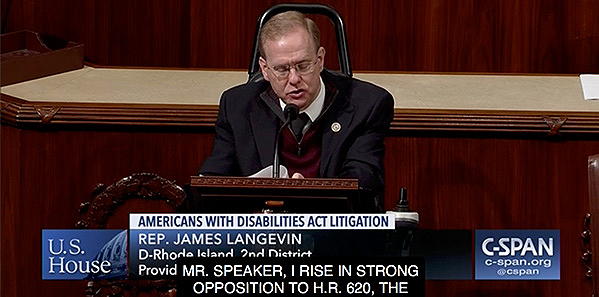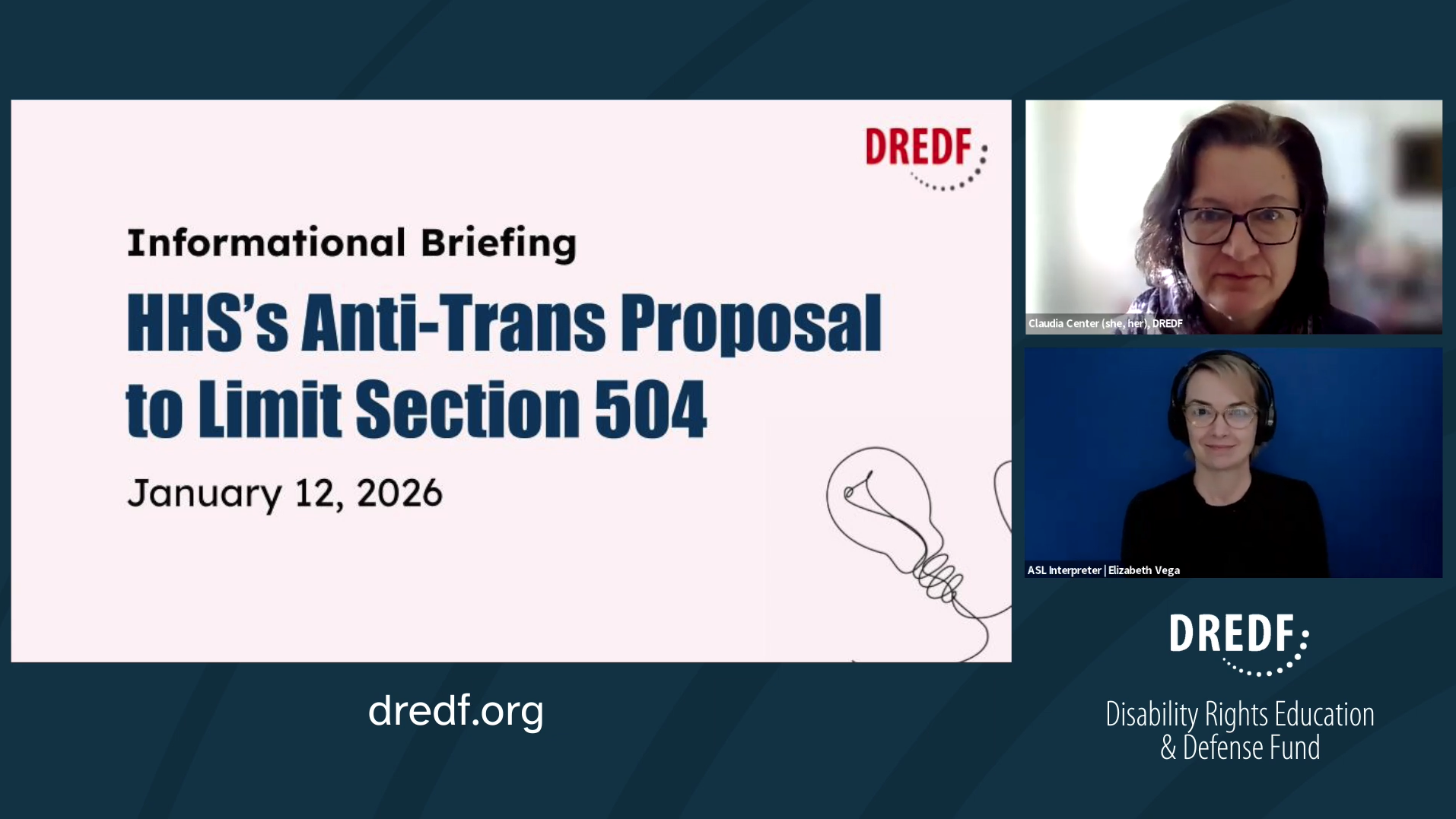
This page is being preserved for historical record and future reference, even though it may no longer be actively used or up to date.

On Thursday, February 15, 2018, the House of Representatives passed the ADA Education and Reform Act (HR 620) by a 225-to-192 vote, with 12 Democrats joining all but 19 Republicans to approve the contentious and controversial bill. HR 620 makes the Title III architectural barrier provisions of the ADA optional by removing any incentive violators have to follow the law.
Marketed as a bill to increase ADA compliance and promote greater inclusion of disabled Americans, HR 620 undermines decades of progress by making it harder for people with disabilities to assert their rights under the ADA while letting violators off the hook. If the bill is successful in the Senate, the law will make it more difficult for disabled Americans to shop, eat out, and use public accommodations alongside our friends, family members, colleagues, and peers.
The Disability Rights Education & Defense Fund (DREDF) strongly and unequivocally condemns the misinformed House vote to roll back the civil rights of people with disabilities. The ADA was passed with overwhelming bipartisan support 28 years ago in 1990, and has dramatically improved the lives of tens of millions of disabled Americans since then. This attempt by the House to return disabled Americans to second class citizenship will not go unnoticed by voters.
Backers of HR 620 can try to spin the vote, but the bottom line is, this bill, and the House members who voted in favor of it, just sanctioned discrimination and rewarded law-breakers by removing incentives to comply with one of our nation’s civil rights laws. This bill reinforces the fiction of a tsunami of so-called drive-by lawsuits, amplified by powerful corporate and industry interests, without offering any real solutions. In actual fact, the few unscrupulous attorneys who misuse the ADA are better addressed by state courts and bar associations.
Worse yet, HR 620 does the opposite of what its backers say the bill was designed to correct: it adds legal hurdles for those facing discrimination to jump through, increases court wait times, and lets law–breakers carry on with business as usual. Violators have had 28 years to become familiar with and follow the ADA. That’s long enough. Any attempt by industry backers to bamboozle the public and assault the ADA with additional lies, corporate pressure, and hyperbole must be rejected by the Senate.

